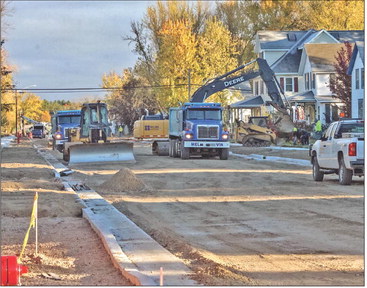Second Street deadline extended to Oct. 19


Colby Second Street construction is behind schedule as soil moisture and contractor errors have extended the project. The project was scheduled to be able to be driven on by reside...


Colby Second Street construction is behind schedule as soil moisture and contractor errors have extended the project. The project was scheduled to be able to be driven on by reside...